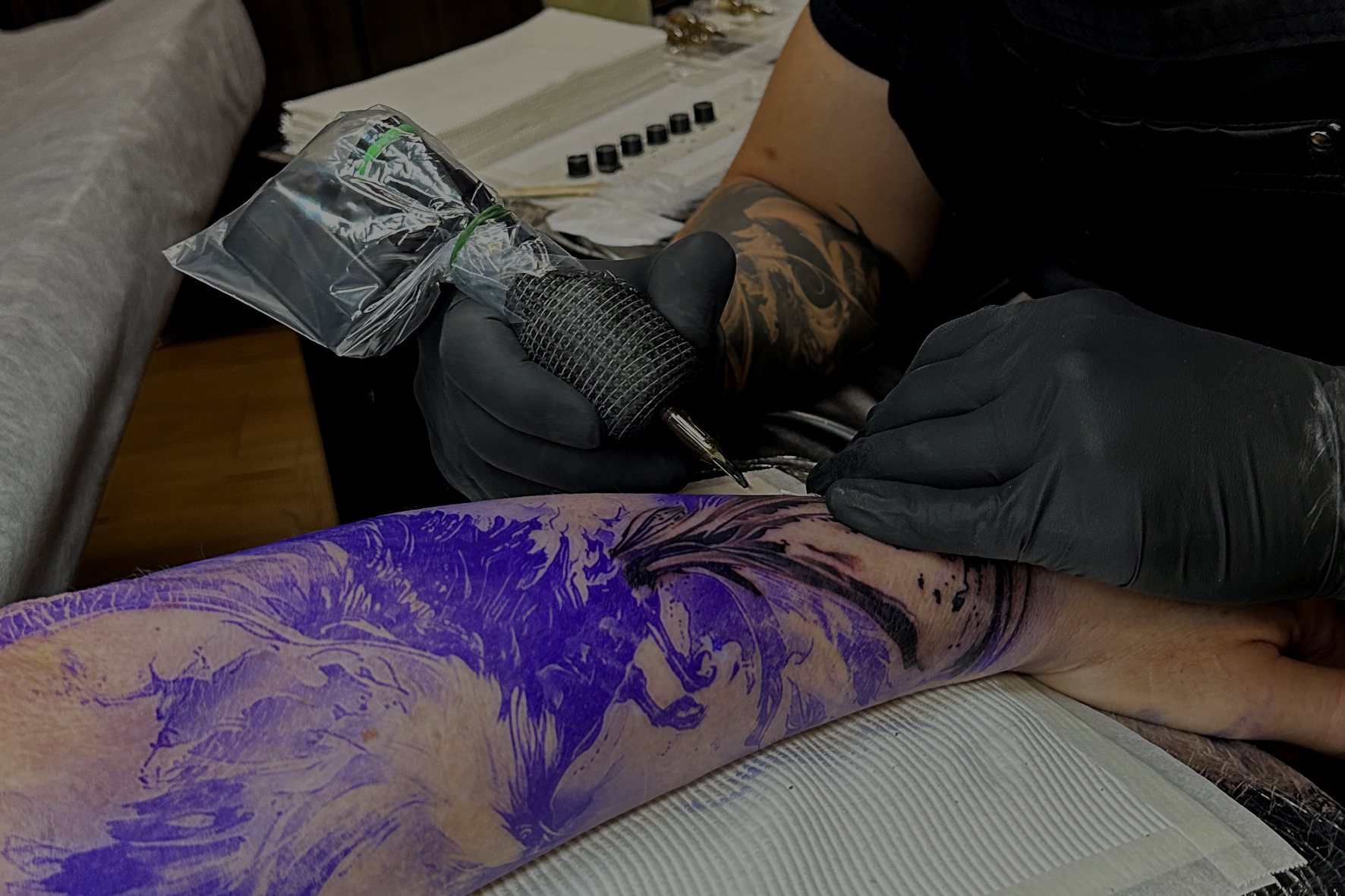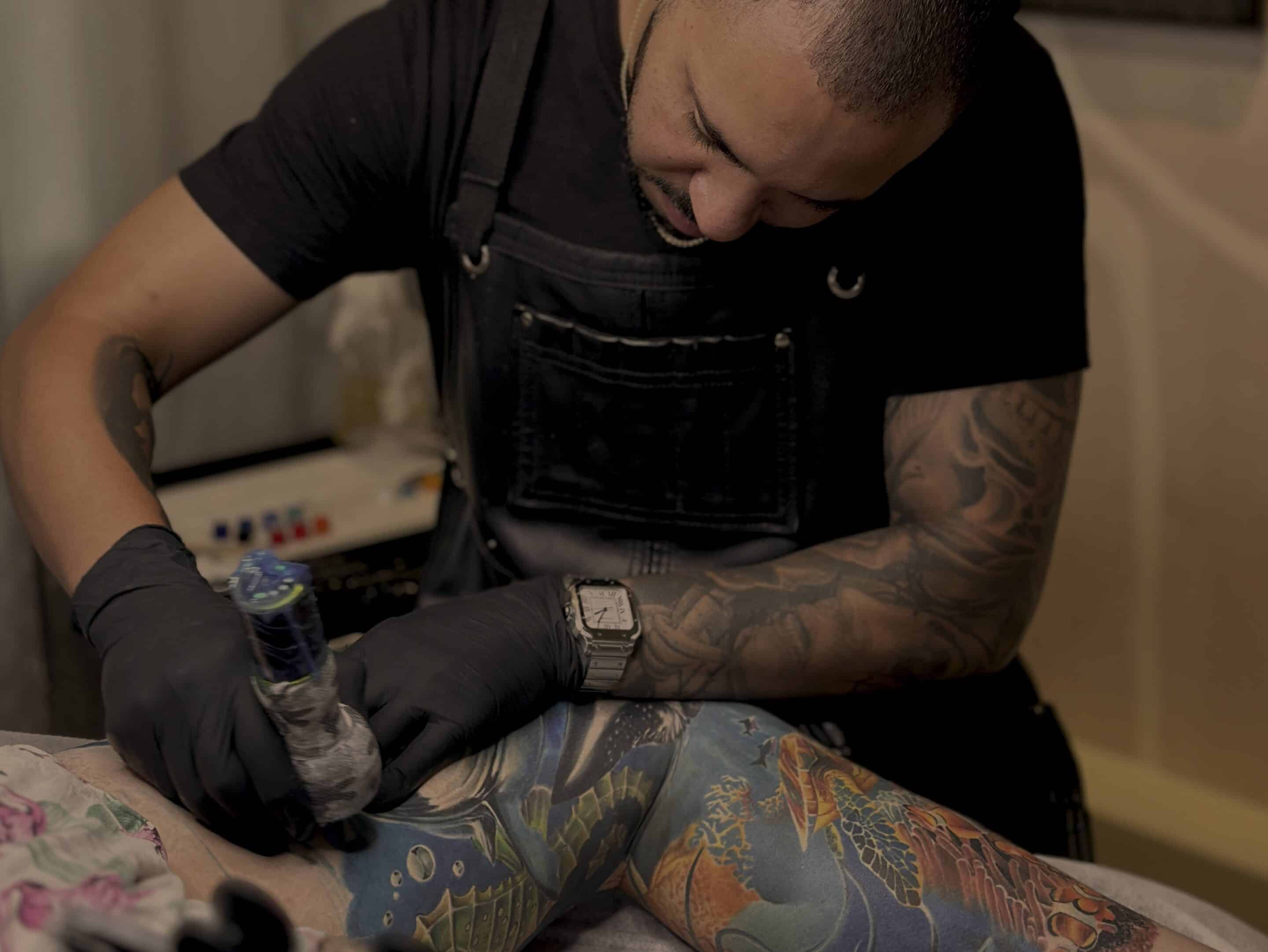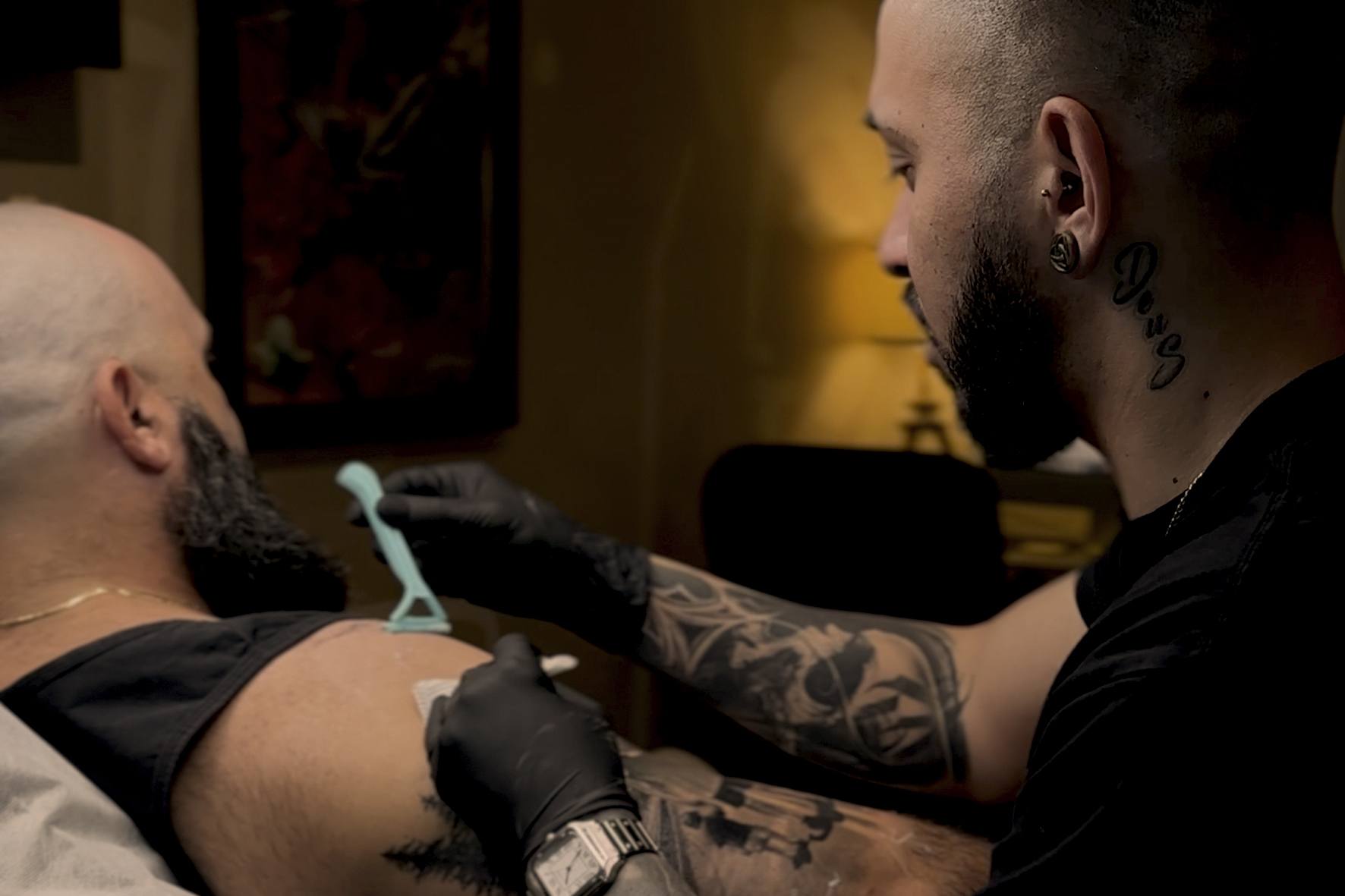When you get a tattoo, your skin goes through a healing process that involves a natural inflammatory response from the body. While the tattoo itself is a permanent piece of art, the inflammatory process plays a crucial role in the skin’s healing. In this article, we’ll explain how the inflammatory process works during tattoo healing, the care you should take, and why you shouldn’t use anti-inflammatory medications or antibiotics during this period.
What is the Inflammatory Process?
The inflammatory process is the body’s response to any type of injury or trauma. In the case of tattoos, the needle’s application to the skin causes controlled, small damages to the epidermis and dermis, where the ink is deposited. As a result, the body triggers a series of mechanisms to repair the affected area, starting with inflammation.
This process can be divided into three main phases: inflammation, proliferation, and maturation. Each of these phases plays a specific role in the healing of your tattoo.
1. Inflammatory Phase
The first phase of the inflammatory process begins immediately after getting the tattoo. This phase, which lasts anywhere from a few days to a week, is when the body attempts to contain the injury and begin the healing process. This involves:
- Vasodilation: Blood vessels dilate to allow an increased blood flow to the tattooed area. This helps deliver immune cells and nutrients necessary for the healing process.
- Inflammation Production: Inflammation is characterized by increased temperature, redness, swelling, and pain at the tattoo site. This is caused by the increased blood flow and the release of inflammatory substances such as cytokines.
- Immune Response: The immune system begins to fight off any microorganisms that may have entered the skin during the tattoo process, while also removing damaged cells. Defense cells, such as neutrophils and macrophages, are sent to the site to combat infection and start repair.
During this phase, it’s normal to feel pain, and the skin around the tattoo may be sensitive and inflamed. It’s important not to touch the area and follow proper aftercare to avoid complications.
2. Proliferative Phase
After the inflammatory phase, the body starts actively repairing the damaged tissue. This is done by forming new skin cells and healing the wound. During this phase, which can last from one to two weeks, swelling begins to decrease, and the tattoo starts to heal.
- Cell Regeneration: New skin cells begin to form to replace damaged ones. This process is facilitated by the production of collagen.
- Formation of Scabs: Often, a scab forms over the tattoo as part of the healing process. The scab helps protect the skin and prevents bacteria from entering the area.
- Redness and Swelling Subside: Inflammation begins to diminish, and the tattoo begins to calm down. This indicates that the body is progressing in the healing process.
During this phase, it’s important not to pick at the scabs, as this can interfere with healing and affect the final result of the tattoo.
3. Maturation Phase
The final phase of the tattoo healing process is the maturation phase, which can last anywhere from a few months to up to a year, depending on the area and size of the tattoo. During this phase, the body continues to strengthen the skin and stabilize the tattoo’s colour.
- Skin Refinement: Although the tattoo has already healed externally, the skin is still adjusting internally. Collagen continues to be deposited, and the skin tissue firms up.
- Reduction in Sensitivity: Swelling and redness disappear completely, and the tattoo reaches its final appearance. However, the tattoo may lose some colour intensity during the healing process, which is completely normal.
Why Shouldn’t You Use Anti-Inflammatories or Antibiotics?
While it is common for people to turn to anti-inflammatories or antibiotics to relieve pain or prevent infection after getting a tattoo, using these medications can interfere with the natural healing process. Here’s why:
Anti-inflammatories:
Anti-inflammatory medications, such as ibuprofen, reduce inflammation and pain, but this action can hinder the tattoo’s healing. This happens because inflammation is a crucial part of the body’s response to injury. When inflammation is artificially blocked, the body loses its ability to heal properly, and the tattoo ink can be “pushed out” of the skin.
Inflammation helps “anchor” the ink inside the skin. If the inflammatory process is suppressed, the body may begin to work more effectively at removing the ink, resulting in pigment loss or even patchy tattoos. Therefore, it’s recommended to avoid anti-inflammatories during the healing process.
Antibiotics:
Antibiotics are used to prevent or treat infections, but in many cases, they are not necessary because a tattoo is not a serious wound, and with proper aftercare, the chances of infection are minimal. Using antibiotics without a doctor’s guidance can alter the skin’s natural bacterial flora and hinder the healing process. Additionally, antibiotics can affect the immune response, making the body more likely to “expel” the ink, compromising the tattoo’s outcome.
Aftercare During the Inflammatory Process
It’s essential to follow proper aftercare to avoid complications and ensure that the inflammatory process goes smoothly:
- Proper Hygiene: Wash the tattoo with warm water and a mild soap. Dry it gently with a clean towel, avoiding scrubbing the area.
- Avoid Scratching or Picking at Scabs: Scratching or picking at the scabs can affect the tattoo and cause scarring or infection.
- Keep the Area Hydrated: Use ointments or creams recommended by your tattoo artist to keep the skin hydrated and promote healing.
- Avoid Sun Exposure: During healing, the tattoo should be protected from the sun, as excessive exposure can damage the color and slow the healing process.
Conclusion
The inflammatory process of a tattoo is an essential part of the skin’s healing and helps ensure that the tattoo is successful and long-lasting. While using anti-inflammatories or antibiotics may seem like a solution for pain or infection, these medications can interfere with the healing process and compromise the quality of the tattoo. By following proper aftercare and respecting the body’s natural inflammatory response, your tattoo will heal healthily and beautifully, ensuring that the design remains vibrant and stunning.





